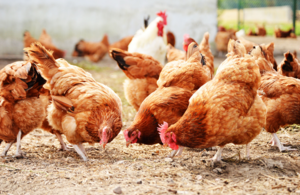Funding for Dorset communities
The money has been granted to Dorset Council to support the community near to the Winfrith site during the coronavirus pandemic.
The council plans to invest the money into three foodbanks in the area, providing personal protective equipment for volunteers and the provision of arts and craft resources to help with schoolwork and other activities for vulnerable youngsters.
The funding forms part of the 12 grants, worth £300,000 in total, Magnox has made available to local authorities or charities where a Magnox site is located.
Gwen Parry-Jones, Magnox Chief Executive, said:
Many community groups are carrying out positive work, supporting the most vulnerable in their areas. This work is vital, and a key part of Magnox’s response to COVID-19 is to help other organisations deal with the pandemic wherever we can.
In this time of national crisis, Magnox has agreed with the NDA that we should make available up to £25,000 at each site from the Magnox Socio-economic Scheme for use by local community groups on COVID-19 related activities. Magnox is committed to assisting the communities surrounding our sites, as our communities have supported us for over 50 years, and we hope this funding will go some way to supporting the essential work being delivered.
Councillor Laura Miller, Dorset Council’s portfolio holder for Adult Social Care and Health, added: “On behalf of everyone at Dorset Council, I would like to whole-heartedly thank Magnox for their generous donation.
“We have arrangements in place across the council area to ensure emergency community food provision is available – free of charge – for those who need it.
“This significant Magnox donation will go some way in ensuring that we have sufficient foodbank stock ready as we continue to keep our volunteers, foodbank and community hub staff safe as they provide a lifeline service to some of the most vulnerable residents in our communities.
“I have seen first-hand the work carried out by the foodbank, their volunteers and our community voluntary sector over the last few weeks who are doing such a fantastic job in very challenging circumstances and I can’t praise them highly enough.”
